
TAX THE RICH: mainstreaming in political discourses online
Alexandria Ocasio-Cortez’s TAX THE RICH dress was a treat for political meme creators around the world. But the memes following Ocasio-Cortez’s Met Gala 2021 appearance did more than just give us a chuckle. They made us talk about American politics, socialism, and anti-capitalism. In this article, I will take a closer look at how ideologies can be mainstreamed in political discourses around the world through social media. I will do so by analyzing the influence the TAX THE RICH dress has had on Dutch political discourse and by diving deeper into the act of mainstreaming.
Mainstreaming political discourse
The current age of geocultural globalization is characterized by a fast increase in traffic in people, capital, goods, images, and discourses (Blommaert, 2010). This also applies to political issues, discourses, and actions. A Swedish girl organizing a school strike for the climate can incite similar strikes in South Africa the next month. A black man being killed in Minneapolis can lead to anti-racism protests in Melbourne the next week. And the exposure of the Uyghur genocide in China can turn thousands of French Twitter profile pictures blue the very next day.
But, with political issues being discussed globally, we see an interesting dynamic taking shape: domestic political discourse within a country can have a mainstreaming effect on the domestic political discourse in other countries. That is to say: it can move discourses, ideologies, or attitudes from more marginal positions in the public sphere to more central ones, shifting what is deemed to be acceptable or legitimate in political, media, and public circles and contexts (Brown et al., 2021).
Through social media, politicians are able to have a mainstreaming effect within domestic political discourses around the globe
The same developments in media, communication, and information technologies that brought about the new age of geocultural globalization (Blommaert, 2010), can consciously and unconsciously be used by politicians to extend their reach outside of the borders of the nation-state they serve. One important development in this has been the rise of social media. Through social media, politicians are able to have a mainstreaming effect within domestic political discourses around the globe.
In this article, I will explore this dynamic more closely by ways of an empirical case study on a picture of American politician Alexandria Ocasio-Cortez, and the uptake of this picture by a Dutch political meme page. In what follows, the case and data will be presented.
The TAX THE RICH dress
On 13 September 2021, Alexandria Ocasio-Cortez (also known as AOC) attended the Met Gala, an annual fashion event that traditionally gets a lot of global media coverage. During “fashion’s biggest night out” (Vogue, 2021), Ocasio-Cortez wore a white dress with the text “TAX THE RICH” in red letters on her back, as shown in Figure 1. This text indexes left-wing, anti-capitalist political views on taxing. This indexicality is supported by the use of the color red, which might in itself index certain political ideologies characterized by anti-capitalism, e.g. communism, Marxism, and socialism.
These left-wing ideologies have been associated with the color red since the use of the plain red flag during the French revolution (Age of Revolution, n.d.). Since then, the color red has been featured prominently in the national flags of socialist countries (e.g. Sovjet Union, People's Republic of China, Vietnam), and left-wing political parties (e.g. the Socialist Party (SP) and Labour Party (PvdA) in the Netherlands). This argument is complicated, however, in the context of US politics, since, in America, red is the color of the predominantly right-wing republican party, while the predominantly left-wing democratic party uses the color blue.
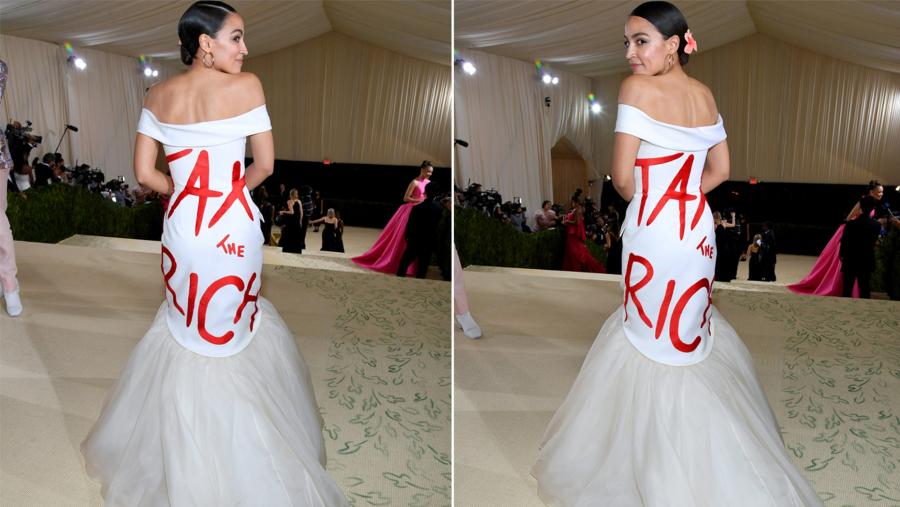
Figure 1: Pictures of Alexandria Ocasio-Cortez in her TAX THE RICH dress at the Met Gala 2021 (Picture via Carras, 2021)
Ocasio-Cortez is known as an American democratic socialist whose priority is to tax top incomes (Democratic Socialists of America, 2021), a position traditionally taken by the left-wing of the political spectrum, which generally pleads for a strong government and a society where the strongest shoulders carry the most weight. In American politics, this view is currently mainly expressed by democratic politicians like Elizabeth Warren, Bernie Sanders, and yes - Alexandria Ocasio-Cortez (Schwartz & Gates, 2019).
Politically, it makes sense for Ocasio-Cortez to express these views at an informal public appearance which is bound to get a lot of media attention, such as the Met Gala. The politician even stated that it was her goal to “inject urgent conversations of race, class, climate and justice” into the Met Gala with this dress (Ocasio-Cortez, 2021). But, by wearing this dress to the Met Gala, Ocasio-Cortez did not only express her political views to the US audience, but she also addressed the Met Gala audience around the world.
A global audience
This is a side effect of Americanization. The rest of the world – especially the Western world – is closely tuned in to American affairs concerning almost every aspect of social life. Within the Met Gala, several of these aspects collide. It’s a global fashion event, where famous designers from around the world display their newest designs. The attendance of international celebrities also makes it a global entertainment event. The appearance of Ocasio-Cortez and the statement she made with the TAX THE RICH dress show that the Met Gala can be a global political event as well.
The American politician was accused of hypocrisy for criticizing capitalism while attending an undisputedly capitalist event
All of these aspects coming together on the American red carpet of the Met Gala results in a huge, global audience. Vogue reported that they reached over 200 million views across all their online platforms with content regarding the Met Gala 2021 (Weiss, 2021). And that’s not even considering the audience of all the commentary, analyses, memes, compilations, and critiques by other people and media in reaction to the event.
In all of this global attention, Ocasio-Cortez’s dress did not go unnoticed. Pictures of the TAX THE RICH dress resulted in uptake from both mainstream and fashion-specific media around the world (e.g. Lupini, 2021; Van Zutphen, 2021; Villarreal, 2021). Most of this uptake was critical of Ocasio-Cortez. The American politician was accused of hypocrisy for criticizing capitalism while attending an undisputedly capitalist event (Di Placido, 2021).
Memes for the masses
The TAX THE RICH dress also caught the attention of ‘memesvdmassa’ (memes for the masses). This is a Dutch Instagram account that could be considered as operating at the margins of Dutch political discourse. The account is linked to a group of politically left-wing oriented youth in the Netherlands who call themselves ‘poldersocialisten’ (polder socialists). Their Instagram account has over 11.000 followers. On here, they post content that they themselves describe as “Fresh polder-socialist memes for class-aware teens” (Memes voor de Massa’s, n.d., translation my own).
Memesvdmassa decontextualized a picture of Ocasio-Cortez in her dress and recontextualized the picture in two memes. They posted these memes on their Instagram page the day after the Met Gala. In the first meme, the text “TAX THE RICH” is replaced with the logo and slogan of the SP, the biggest socialist party in The Netherlands. As can be seen in Figure 2, the caption of this post simply reads “Wow!” (highlighted).
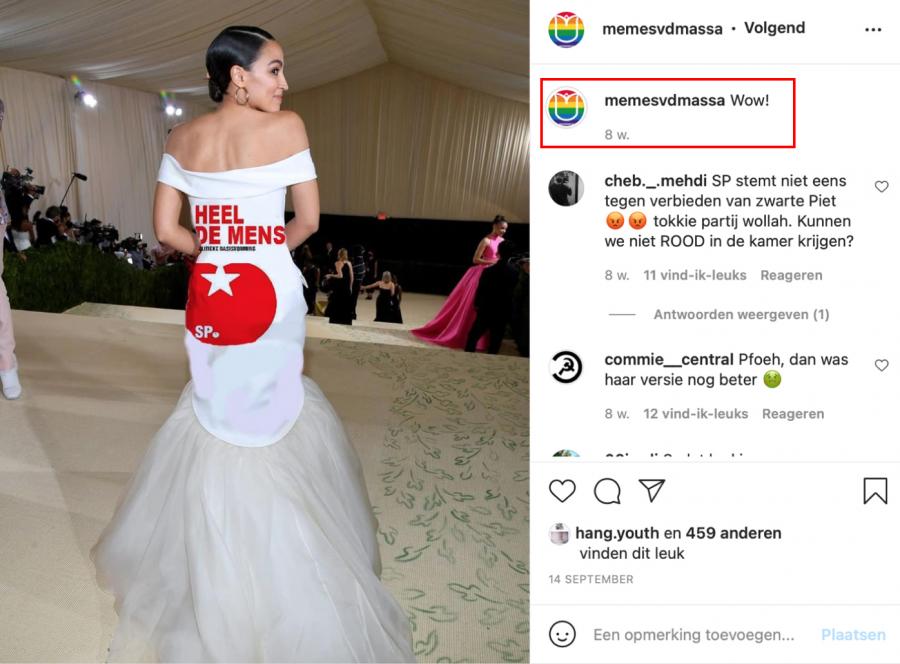
Figure 2: Screenshot of a meme posted by memesvdmassa (caption highlighted)
So far, one might assume that this meme is made with a positive message. It makes sense to assume that a socialist group would support a socialist politician and her anti-capitalist views on taxing. And it also makes sense to assume that they would support the socialist party in their own country.
This assumption is challenged, however, by a second meme that memesvdmassa posted that same day. In this meme (Figure 3), “TAX THE RICH” is replaced with a statement (still in red letters) that reads: “Anti-capitalism is more than hollow phrases and it certainly doesn’t come from the political elite” (translation my own). This text intertextually echoes Mark Fisher’s ideology of capitalist realism (Fisher, 2009). The post is accompanied by another one-word caption: “Preach” (highlighted).
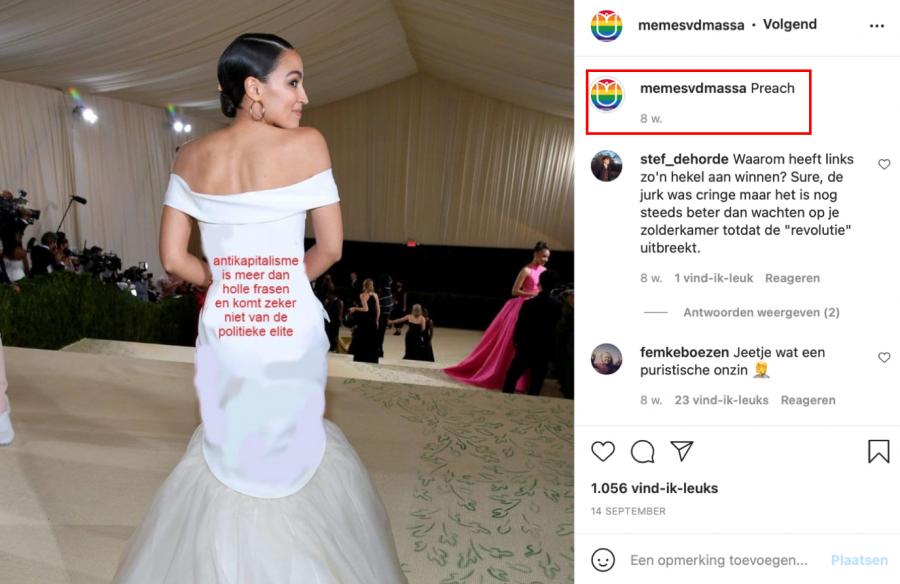
Figure 3: Screenshot of another meme posted by memesvdmassa (caption highlighted)
Considering the second meme, it becomes clear that the first meme was not in praise of the SP at all. It was actually a critique of the Dutch socialist party. Apparently, memesvdmassa thinks that the SP does not represent the authentic anti-capitalist values of socialism. Instead, they frame both Alexandria Ocasio-Cortez and the SP as political elitists that rely on hollow phrases.
Mainstreaming on social media
Besides memesvdmassa, more social media accounts contributed to Dutch political discourse by reacting to the TAX THE RICH dress (e.g. @tweetjesvanmax, 2021; @SBergsma, 2021; @2Tall4u_, 2021). So it is clear that Ocasio-Cortez’s appearance has had an effect on the Dutch political discourse through social media. To further analyze the mainstreaming dynamic in this case study, I will use the holistic framework of mainstreaming laid out by Brown et al. (2021).
Brown et al. (2021) define mainstreaming as: “the process by which parties/actors, discourses and/or attitudes move from marginal positions on the political spectrum or public sphere to more central ones, shifting what is deemed to be acceptable or legitimate in political, media and public circles and contexts.”
The holistic framework of mainstreaming that Brown et al. (2021) present is visualized in Figure 4. It states that both mainstream and marginal parties/actors can contribute to the (political) discourse. This discourse can then have two effects: a strategic effect, by which election results are influenced directly and a mediation effect, by which the electorate is influenced, without necessarily influencing election results. But most importantly, the framework states that the interpretation from the electorate and/or the election results can contribute to the normalization – mainstreaming – of political discourse.
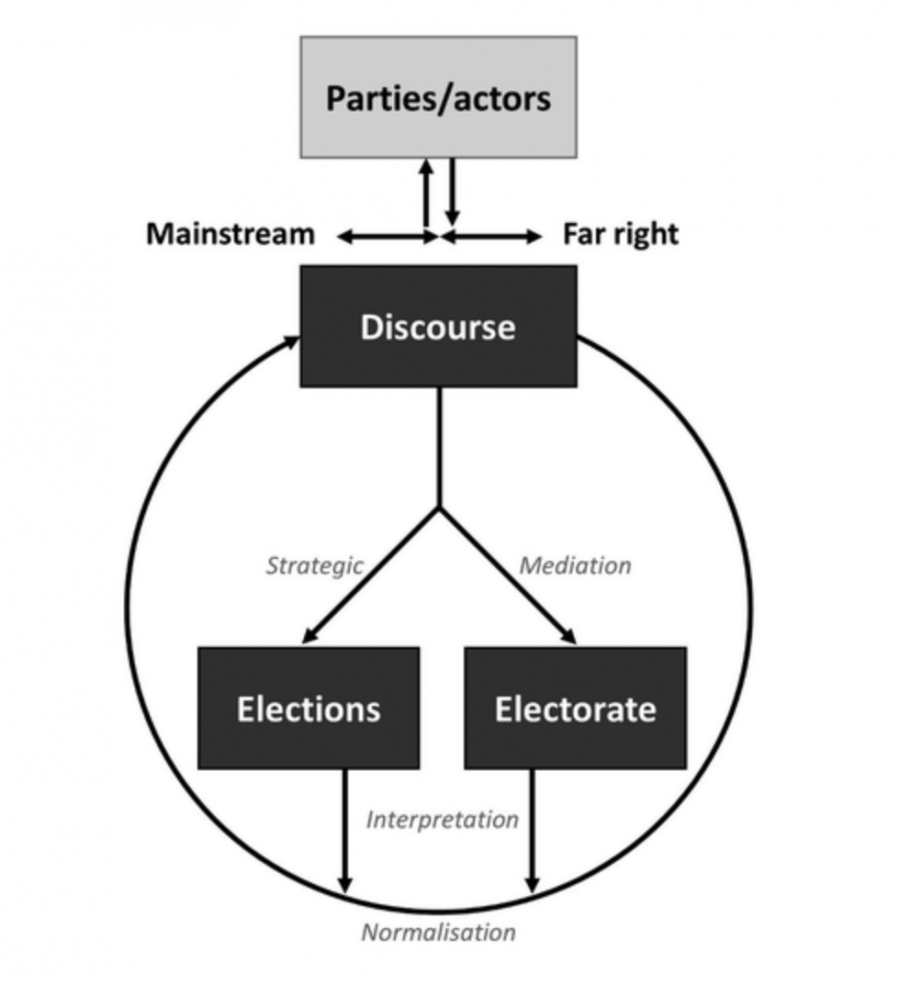
Figure 4: The holistic framework of mainstreaming (Brown et al., 2021).
Figure 4 mentions the far right, but the framework applies to all marginal parties/actors, discourses, and attitudes. Since capitalism is the prevailing economic system in both the US and the Netherlands, anti-capitalist rhetoric can surely be qualified as marginal in this case study.
Americanization of Dutch political discourse
Within the discourse surrounding the TAX THE RICH dress, mainstreaming is taking place on two levels: the level of the subject matter and the level of political practices. Above, the subject matter being mainstreamed has already been analyzed, namely a left-wing, anti-capitalist view on taxing. Even though, in this case, the message might not have been received in the way Ocasio-Cortez had hoped for.
To analyze the political practices that are being mainstreamed, I will build upon Castells’ theory of informational politics and the Americanization of European politics. According to Castells (2010), the main attributes of informational politics, as identified in America, characterize European politics as well. Castells defines these attributes as 1) simplification of the message; 2) professional advertising and polling as political tools; 3) personalization of options; 4) negativism as a predominant strategy; 5) the leaking of damaging information as a political weapon; and 6) image-making and spin control (Castells, 2010).
Ocasio-Cortez could have reached and influenced a global audience by attending the Met Gala, regardless of her intentions
Within Ocasio-Cortez’s appearance at the Met Gala, at least four of these attributes are recognizable (namely 1, 3, 4, and 6). As a side effect of Americanization, Ocasio-Cortez essentially broadcasts these American attributes of informational politics to the rest of the world. It is hard to say if this was Ocasio-Cortez’s intention. But the consequences of Americanization are not so much dependent on the intention of the American politician, as they are on the influence of digital media and the central role America plays in our globalized social world. In other words: Ocasio-Cortez could have reached and influenced a global audience by attending the Met Gala, regardless of her intentions.
The mainstreaming effect of Ocasio-Cortez’s way of doing politics is visible in the uptake by memesvdmassa. They simplify the message even further (with one-word captions), continue the negativism as a predominant strategy, and remix Ocasio-Cortez’s dress in order to indexically reinforce their own image as ‘true’ socialists. The mainstreaming effect within Dutch political discourse, however, is not only shaped by Ocasio-Cortez’s actions. It is also shaped by social media logic.
Social media logic and mainstreaming
According to Castells (2010), globalization has increased the importance of digital media for politics. He writes: “political communication and information are essentially captured in the space of the media. […] The logic, and organization, of electronic media frame and structure politics” (Castells, 2010). Furthermore, he argues that this framing of politics by their capture in the space of the media impacts not only elections, but political organization, decision-making, and governance. In other words: “political actors have to abide by the rules, technology, and interests of the media” (Castells, 2010)
To understand how social media – like Instagram – frame politics, it’s important to understand social media logic. For this, I turn to Van Dijck & Poell (2013). They argue, that on social media, users have the ability to influence the flow of information and communication. They can submit and interact with content. In the case of the TAX THE RICH dress, memesvdmassa influences the flow of information by recontextualizing the dress into two memes and posting them.
Another element of social media logic, popularity, constitutes that users have the power to push certain people, topics, or discourses to the frontlines of public attention (Van Dijck & Poell, 2013), speeding up the process of mainstreaming. With their posts, memesvdmassa, pushed Ocasio-Cortez’s anti-capitalist rhetoric and American political practices to the fore, albeit in a critical manner.
Images make for the most effective messages in a world increasingly saturated by information
Additionally, the connectivity afforded by social media enables users to easily form personalized, fluid, social networks (Van Dijck & Poell, 2013). This essentially lowers the bar for users to ‘join’ a marginal community (in this case the Dutch socialist community of ‘poldersocialisten’), which might give these marginal communities and their discourse more mainstreaming momentum.
In this specific case, it is also Instagram’s focus on the visual that makes it the perfect platform for a picture like that of the TAX THE RICH dress (and its remixes) to spread, enhancing all aforementioned elements of social media logic. This brings me back to Castells’ work on informational politics in a globalized world, wherein he mentions that images make for the most effective messages in a world increasingly saturated by information (Castells, 2010).
Finally, it is worth mentioning that memesvdmassa is aware of their role in the mainstreaming of socialist ideology within Dutch political discourse. This is made explicit by another meme posted by memesvdmassa on 1 November 2021 (Figure 5), reading: “When your friends are slowly radicalizing after a flow of political memes / It was always the plan”.
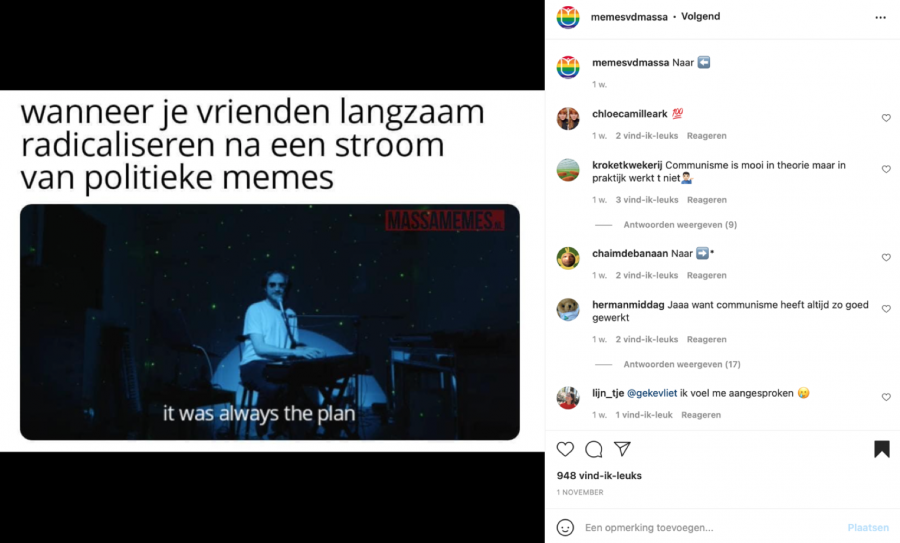
Figure 5: Screenshot of a meme posted by memesvdmassa some time after the TAX THE RICH episode
Addressing the world through social media
Ocasio-Cortez’s dress and the remixes by memesvdmassa have not had any noticeable effect on Dutch elections as of yet. But, following Brown et al.’s framework (2021), that doesn’t mean it did not have a mainstreaming effect at all. The interpretation of the Dutch electorate might very well contribute to further normalization – mainstreaming – of Ocasio-Cortez’s anti-capitalist rhetoric and an American, informational way of doing politics within the Dutch domestic political discourse.
Since globalization has made digital media extra important for politics, it makes sense that social media play an important role in this dynamic. Social media logic might even accelerate the process of mainstreaming by enabling users to influence the flow of information, by lowering the threshold to join marginal communities, and by assigning more value to the visual (in the case of Instagram).
The political discourse in the Netherlands surrounding the TAX THE RICH dress reinforces the idea that social media play an important role in globalizing and mainstreaming (domestic) political issues and discourses. It shows that politicians and other actors can be aware of this dynamic and may try to use it to their political or ideological advantage. After all, when Alexandria Ocasio-Cortez put on her TAX THE RICH dress to inject urgent conversations of race, class, climate, and justice into the Met Gala, she could have known that she would not just address the US. She would address the world through social media.
References
Age of Revolution. (2021, March 8). Red Flag.
Blommaert, J. (2010). The Sociolinguistics of Globalization. Cambridge University Press.
Brown, K., Mondon, A., & Winter, A. (2021). The far right, the mainstream and mainstreaming: towards a heuristic framework. Journal of Political Ideologies, 1–18.
Carras, C. (2021, 15 September). Met Gala: AOC is still defending her “Tax the Rich” dress.
Castells, M. (2010). The Power of Identity. Wiley-Blackwell.
Democratic Socialists of America. (2021, March 20). TALKING SOCIALISM | Catching up with AOC. Democratic Socialists of America (DSA).
Di Placido, D. (2021, September 15). The Controversy Over AOC’s ‘Tax The Rich’ Dress, Explained. Forbes. Retreived 16 November 2021, from
Fisher, M. (2009). Capitalist Realism. Adfo Books.
Lupini, A. (2021, September 14). Alexandria Ocasio-Cortez al Met Gala 2021 con l’abito manifesto che fa discutere.
Memes voor de Massa’s. (z.d.). Memes voor de Massa’s. Instagram.
Ocasio-Cortez, A. [aoc]. (2021, September 17). How do we inject urgent conversations of race, class, climate, and justice into an event that is both one of [Post].
Schwarz, N.D. & Gates, G. (2019). Democracts Want to Tax the Rich. Here's How Those Plans Would Work (or Not).
Van Dijck, J., & Poell, T. (2013). Understanding Social Media Logic. Media and Communication, 1(1), 2–14.
Van Zutphen, N. (2021, September 14). Dit is de betekenis achter de stijlvolle jurk van Alexandria Ocasia-Cortez.
Villarreal, A. (2021, September 14). ‘Medium is the message’: AOC defends ‘tax the rich’ dress worn to Met Gala.
Vogue. (2021). Met Gala 2021: Celebrities, Red Carpet, Theme & More.
Weiss, G. (2021, 17 september). ‘Vogue’ Says Met Gala Content Clocked 200 Million Cross-Platform Views.